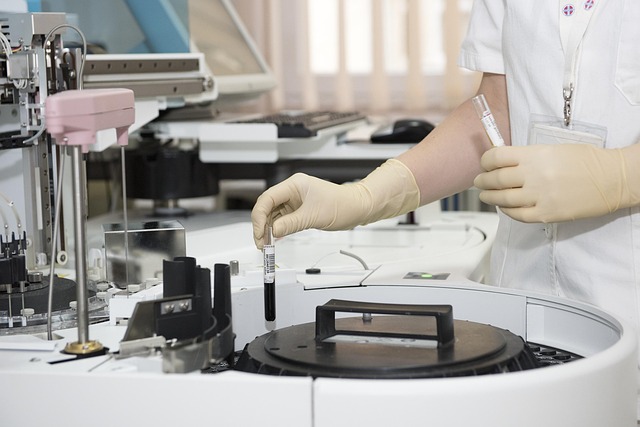New Technology Revolutionizing Healthcare

Technology has always played a crucial role in advancing the healthcare industry, but recent innovations are taking it to a whole new level. From artificial intelligence to wearable devices, there are exciting developments that are changing the way we approach healthcare.

Artificial Intelligence in Healthcare
One of the most revolutionary technologies making waves in healthcare is artificial intelligence (AI). AI has the potential to analyze large amounts of data in real-time, helping healthcare professionals make more informed decisions. For example, AI-powered algorithms can help radiologists detect tumors more accurately or assist doctors in diagnosing rare diseases.

AI is also being used to improve patient outcomes by personalizing treatment plans. By analyzing a patient’s genetic makeup, medical history, and lifestyle factors, AI can recommend customized treatment options that are more effective and tailored to the individual.

Wearable Devices and Remote Monitoring
Another exciting trend in healthcare technology is the use of wearable devices for remote monitoring. These devices allow patients to track their health metrics, such as heart rate, blood pressure, and activity levels, in real-time. This data can be shared with healthcare providers, enabling them to monitor patients’ progress and intervene quickly if necessary.

Wearable devices are particularly beneficial for patients with chronic conditions, such as diabetes or heart disease, as they can help them manage their health more effectively and reduce the need for frequent hospital visits.

Telemedicine and Virtual Healthcare
Telemedicine has been gaining popularity in recent years, allowing patients to consult with healthcare providers remotely through video calls and online platforms. This is especially useful for patients in rural or underserved areas who may not have easy access to healthcare facilities.

Virtual healthcare platforms are also revolutionizing the way patients receive care. These platforms offer a range of services, from virtual consultations to remote monitoring, enabling patients to access healthcare from the comfort of their own homes. This not only improves convenience for patients but also helps reduce healthcare costs and wait times.

Robotics in Surgery
Advances in robotic technology have dramatically transformed surgical procedures, making them more precise and less invasive. Robotic-assisted surgery allows surgeons to perform complex procedures with greater accuracy and control, leading to faster recovery times and fewer complications for patients.

Robotic surgery is particularly beneficial for procedures that require delicate maneuvers or access to hard-to-reach areas of the body. Surgeons can use robotic arms to perform intricate tasks with greater dexterity, reducing the risk of human error and improving overall outcomes.

The Future of Healthcare Technology
As technology continues to evolve, the possibilities for its application in healthcare are endless. From AI-driven drug discovery to 3D-printed organs, the future of healthcare technology holds promise for improving patient care and revolutionizing the way we approach health and wellness.

It’s clear that technology is driving significant advancements in the healthcare industry, making it an exciting time for both healthcare professionals and patients alike. With continued innovation and investment in technology, the future of healthcare looks brighter than ever.

